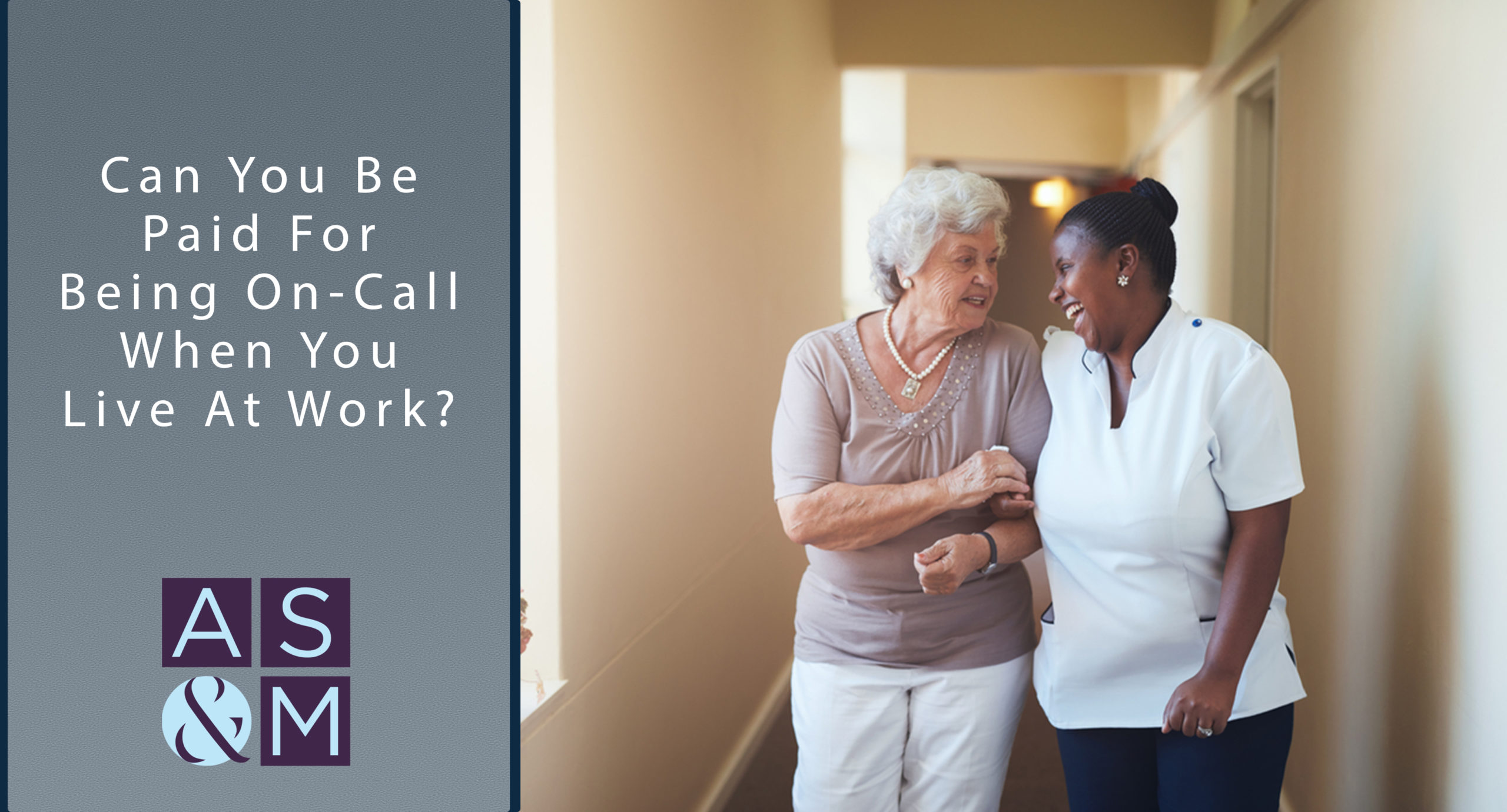
Most of us think of employment as a thing that happens at a place of business. You show up at the store, factory, or office and do your assigned duties for a certain period of time. However, some people’s work schedules are less straightforward, requiring them to spend certain periods of time waiting for their employers to call them to work.
And then there are some people that live at their places of business. This can mean people that have to live at an on-site apartment when on-call to respond to emergencies at a home for the aged, or people who provide live-in care at people’s homes. This blurring of the lines between place of business and residence can make the distinction of being on-call difficult. There are a couple of things to consider.
Wage Order Number 5
The Industrial Welfare Commission in California sets wages, hours and conditions of workers by industry, generally by promulgating edicts called wage orders. Notably, they created Wage Order Number 5 to govern the public housekeeping industry, an industry that they define as a business that provides meals, housing, or maintenance services as part of their services. Hotels, restaurants, rest homes, and private schools where students board can be included in this group. This was amended to include health care workers in 1998 too.
Most of the people working in these industries won’t be required to live at their place of employment. For instance, most nurses live outside of hospitals and most caterers don’t live where they serve meals. In that case, the rules about being paid for being on-call depends on how much control over your free time your boss has. The Division of Labor Standards Enforcement ruled that a court would have to look at whether the employee is told to stay unduly close to work, respond to a call in an unduly restrictive amount of time, whether an employee will get a lot of calls, and whether the employee’s time can be effectively used for their own purposes when they are on-call in deciding if an employee should be paid for their time on-call.
The public housekeeping industry, however, has a lot of employees who provide meals, maintenance, and housing while living at their work, and for these folks, the work order makes an exception. It specifies under subparagraph K of paragraph 2 that the only time that an employee living on the premises is considered to be working is when they are performing their assigned duties. This means that a job where you are required to live on the premises for a certain times while waiting for an emergency to crop up or for your boss to need you is only going to pay you for those times when you are actually working.
Exceptions
Wage Order Number 5 has been amended a few times in its history. One of those times was in 2002, where it laid out employees who are exempt from it. Healthcare workers are always supposed to be paid for time that they are suffered or permitted to work, even when they aren’t required to. The entire order excludes student nurses that are attending schools accredited by California Board of Registered Nursing or by the Board of Vocational Nurse and Psychiatric Technician Examiners.
Getting compensated properly, especially in narrow circumstances, can get complicated. It often requires a lawyer to help parse what you can get. If you are in a situation where you think that you aren’t getting compensated fairly for being on-call, you can talk to the lawyers at Aiman-Smith & Marcy. We’re a boutique law firm that specializes in class-action lawsuits, employment law, and consumer law.





